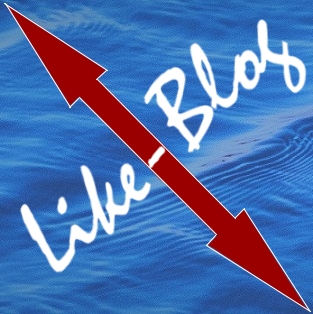Like-Blog
Presenting you the most interesting translation solutions

Why Like-Blog? Now, first of all, this blog is a blog that you should like (and read regularly) – at least, if you are interested in translation. Then, the topic discussed here is one in which the meaningful likeness between a text and its translation in the language pair English-German plays a key role. On this page, I will take a close look at some interesting translation solutions that I have come across in the course of my work as a translator and translation scholar.
A translation solution is only as good as the arguments that support it. This means that any translation criticism, whether positive or negative, needs to be justified. The quality of a translation solution shows only when we compare it to other possible translation solutions in a given translation situation. Therefore, a translation critic should not only say why a translation solution is bad, but also demonstrate what a better solution might look like. I will try to stick to these principles of translation criticism. So if you have any questions regarding my line of argument or if you disagree, please, let me know your opinion by phone at +49 4171 6086525 or by e-mail to bittner@businessenglish-hamburg.de. So much for the introduction. I hope you’ll enjoy reading this blog!
Night (March 2021)
Again, “The Meaning of Michelle Obama” by Nancy Gibbs and Michael Scherer serves as the source for an interesting translation: “Which is why that night, the women leaders reassembled at the White House for a dinner with more than 100 students from schools across the city to celebrate Women’s History Month. Tonight is your night, Michelle told the girls. So don’t be shy. ‘Poke and prod and figure out how [these women] got to be where they are and what you can do in your lives to get yourselves ready for that next step.’”
In German: “Aus diesem Grund kamen in dieser Nacht die weiblichen Führungspersönlichkeiten zu einem Dinner im Weißen Haus mit mehr als 100 Schülern von Schulen aus der ganzen Stadt zusammen, um den „Women’s History Month“ zu feiern. „Diese Nacht gehört euch“, versicherte Michelle den Mädchen. „Also seid nicht schüchtern. Hakt nach, sprecht sie an und findet heraus, wie [diese Frauen] dahin gekommen sind, wo sie jetzt sind und was ihr in eurem eigenen Leben tun könnt, um euch auf den nächsten Schritt vorzubereiten.“” Not a bad translation, really. Still, there are three points that could be rendered in a more plausible fashion.
The first point concerns the English word “night”, which interestingly may refer to the time between sunset and sunrise or to one of the partial periods from sunset to bedtime and from bedtime to sunrise. The German cognate “Nacht” by contrast is not used to refer to the period from sunset to bedtime, as is shown by the following definition taken from the Duden: “Zeitraum etwa zwischen Sonnenuntergang und Sonnenaufgang, zwischen Einbruch der Dunkelheit und Beginn der Morgendämmerung”, i.e., the period between sunset and sunrise, between the onset of darkness and the beginning of dawn.
A dinner takes place in the evening rather than in the dark of night. This is why, in the translation, “Nacht” should be replaced by “Abend”. It may be worth mentioning, here, that a rendering of “dinner” as “Nachtessen” or “Nachtmahl” would actually be in keeping with the temporal setting of the text. For both German expressions are synonyms of the compound “Abendessen”: while “Nachtessen” is used in southern Germany and in Switzerland, “Nachtmahl” is used in southern Germany and in Austria.
The second point that could be rendered in a more plausible fashion relates to the translation “mit mehr als 100 Schülern” for “with more than 100 students”. As the context makes it clear that the students are “girls”, a more appropriate rendering would be: “mit mehr als 100 Schülerinnen”.
Compared with the first two points, the third point is least obvious. It is about the translation of Michelle Obama’s invitation to the students that they should “[p]oke and prod and figure out how [these women] got to be where they are”. The German version is not bad: “Hakt nach, sprecht sie an und findet heraus, wie [diese Frauen] dahin gekommen sind, wo sie jetzt sind” (dig deeper, speak to them, and find out how ...). What could be improved, though, is the order. Speaking to them comes first followed by digging deeper and finding out: Sprecht sie an, hakt nach und findet heraus, wie ....
